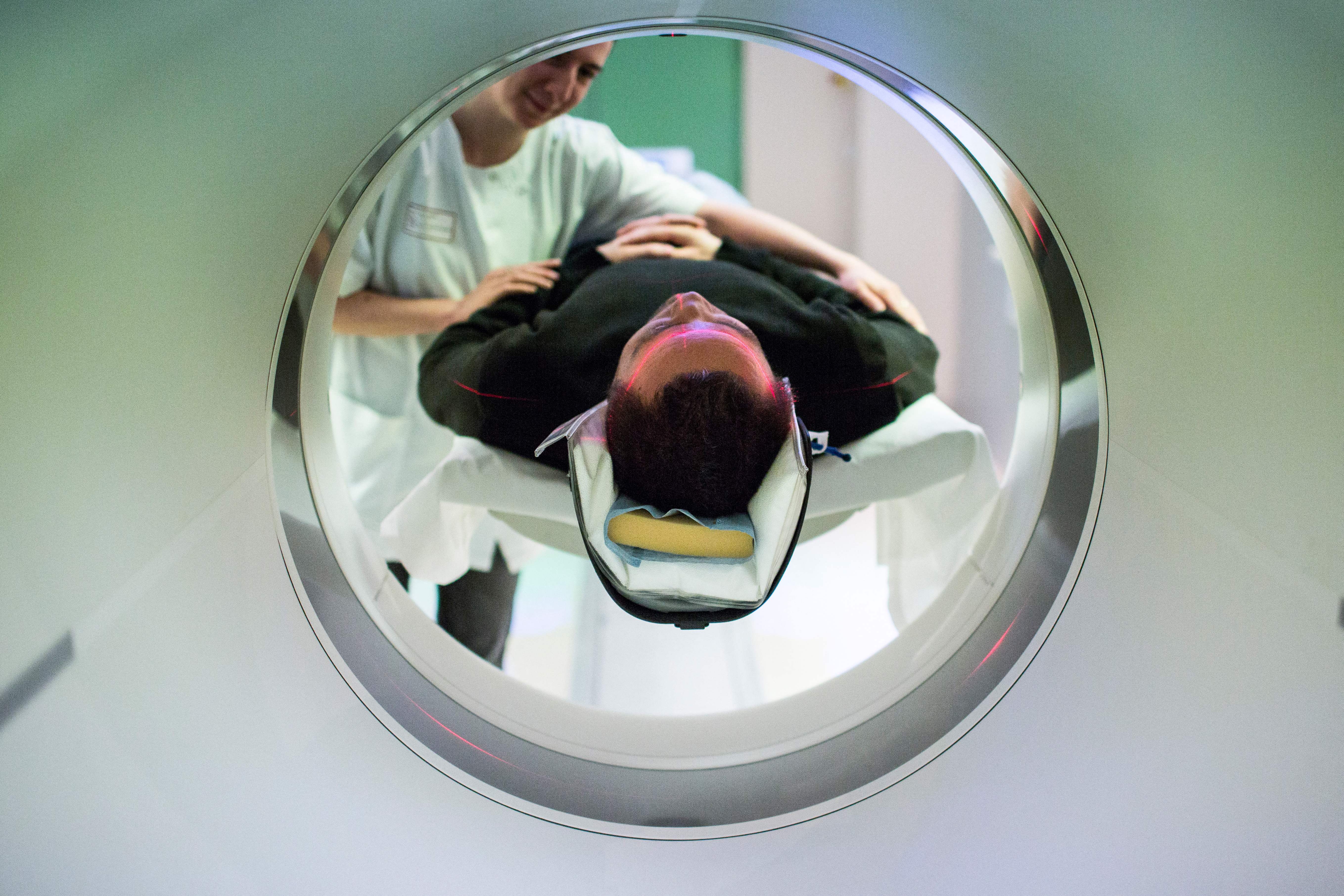A simple body scan could discover your risk for a heart attack or stroke —conditions that kill hundreds of thousands of people each year and occur every 40 seconds in the U.S.
The scan, which is known as a “coronary calcium scan,” helps doctors look for a build up of calcium in the arteries, which accumulates naturally after age 20.
Too much calcium can narrow the arteries and reduce blood flow to the heart, leading to the life-threatening medical events. People who have a higher amount of calcium are at a greater risk of a heart attack in the future.
Getting tested could help people take decisive action to reduce their risk through lifestyle changes, including improving diet and fitness habits.
“Healthy patients without a history of heart disease can consider having a coronary artery calcium score done after age 40,” Dr. Tom Nguyen, chief medical executive at Baptist Health’s Miami Cardiac & Vascular Institute, explained to The New York Post.
The scan is done using a CT scanner, combining X-rays with computer processing to create pictures inside the body. Patients lie down and are slid into the tube-shaped machine, keeping completely still. The entire process only takes about 10 to 15 minutes.
The procedure assesses heart attack and stroke risk using a scoring system, ranging from zero to more than 300.
Patients with a score of between 100 and 300 have moderate calcium deposits and a relatively high risk of heart attack or heart disease over the next three to five years, according to the Mayo Clinic. Those with a higher score are at risk of even more extensive disease and a higher heart attack risk. A score of zero means no calcium is seen in the heart.
Patients should know that the resulting scores may either underestimate or overestimate risk, Dr. Ron Blankstein, a preventive cardiologist at Brigham and Women's Hospital, noted in a statement.
Following the scan, doctors may recommend changes to nutrition and exercise, a different medication, more testing and follow-up appointments.
The scan may be particularly useful for people with a family history of coronary artery disease, a common heart condition often caused by calcium in arteries that can lead to heart attacks. About 18 million – or one in 20 – U.S. adults have the disease.
People who already have coronary artery disease or are known to be at high risk for heart attacks should not get the scan, as the results are unlikely to change their treatment. And pregnant women are not recommended to get the scan because radiation could be harmful to a fetus, according to the Cleveland Clinic.

The scans often don’t require a referral by a doctor, but they might not be covered by health insurance. They can cost anywhere between $100 and $400 out of pocket, according to the American Heart Association.
The scans have been around for more than a decade but are now more widely used, according to Blankenstein.
Heart disease is a leading killer in the U.S, resulting in 919,032 deaths in 2023. Heart disease also heightens the risk for stroke, and some 160,000 Americans die due to strokes each year.
Heart disease and stroke could affect at least 60 percent of American adults by the year 2050, as obesity rates and other risk factors spike.
The risk for heart attacks increases with age and our arteries and blood vessels become stiffer, rising in men at age 45 and in women at age 55. The risk of stroke increases past age 55 for both groups. Men are at increased risk for heart attacks, strokes, and coronary artery disease due to higher rates of high blood pressure, smoking, and drinking.
"A calcium scan is very useful if there's uncertainty about a person's risk of heart disease or the need for statins," Blankenstein said.
Four in five people at risk of early death from heart attack or stroke, officials warn
Routine examination can reveal early signs of brain and heart disorders, research finds
Why walking further and faster could cut your risk of heart attack and stroke
Older adults are unprepared for life-threatening extreme heat







